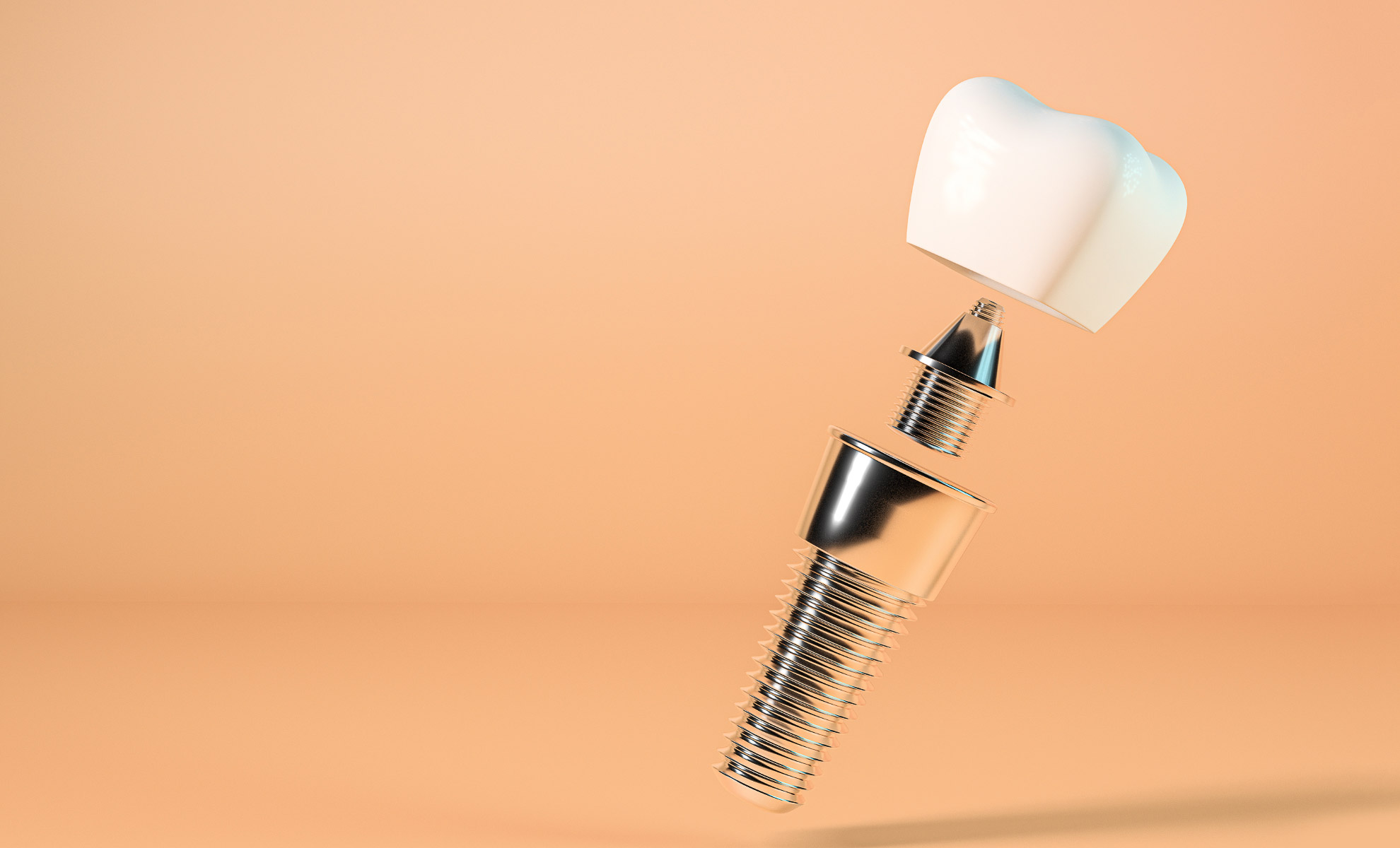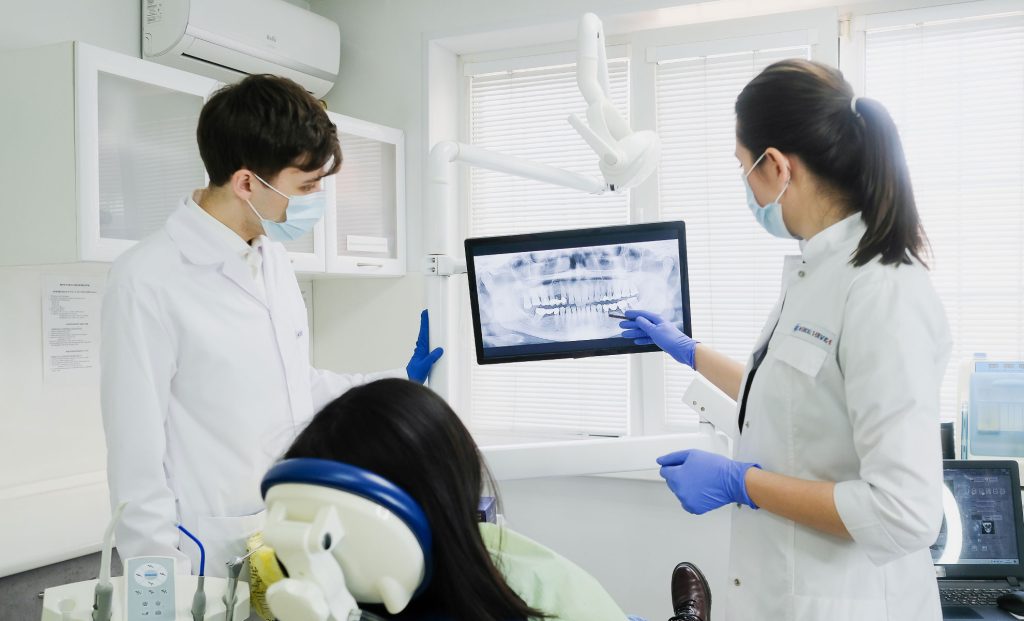Basic information on implants
A missing tooth can leave you feeling embarrassed, but luckily dental implant treatment is a great solution.
The main advantages of implants are:
- the results are permanent
- they are highly esthetic
- they are totally reliable
- you’re able to chew normally again much quicker
- there’s a lower risk of damage to adjacent teeth
- an implant can be used as support for bridges and crowns
- great value for money
Why is it worth having implants?
- a change in the position of your remaining teeth
- a destabilization in the functioning of the temporomandibular joints
- bone loss in the place where the tooth was lost
- visible changes to your face
The chance of a range of complications makes implant treatment to replace your missing teeth worth considering.
Traditional prosthetic solutions can also be used in the tooth reconstruction; however, no bridges or crowns will ever come close to implants, because additional treatments often have to be carried out, and the final result will not be perfect. If you choose a crown or bridge, you need to be prepared for some uncomfortable tooth grinding, and in the case of dentures, the clamps are often visible, which spoils the overall effect and your own confidence.
Just two implants will hold a full denture in place, while for a full bridge at least six implants are required.
So who can have implant surgery? Most adults can afford this kind of treatment, but there are several conditions that need be met:
- Completely developed and formed jaw bones
- Good health, because chronic diseases such as diabetes can have a negative impact on whether the implant takes and on healing times
- Normal, dense bone tissue, which will form the base for the implant
In many cases, even if there are contraindications, the procedure can be carried out. Therefore, various pre-implantation procedures are performed.
What are the recommendations immediately following the procedure?
If you want your implant to stay in your mouth for as long as possible, you really need to take care of hygiene. It’s best to work with a dentist who will advise you on how to take care of your new tooth. After the treatment you should not eat for at least two hours, and avoid smoking. You should return to gentle brushing as soon as possible, and you must use a disinfecting liquid, because impurities around the implant can cause inflammation, even leading to its rejection.
We mentioned smoking cigarettes for a reason, because smoking reduces the body’s ability for tissue regeneration and affects the formation of deposits, which may prevent a fresh implant from ‘taking’.

